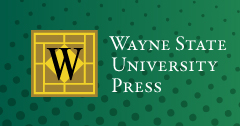Abstract
The stories of the many Jewish youngsters who actively resisted Germany and its collaborators are virtually absent in Holocaust cinematic representations of children. Such erasures stem from two main sources. First, political efforts to discount Jewish heroism in the Holocaust, and second, such representations are increasingly considered incompatible with culturally acceptable notions of youth that privilege narratives of childhood innocence and vulnerability. Numerous feature films, shorts, and documentaries employ the theme of silence to describe suffering and/or murder of victims, persistence of post-Holocaust trauma, intergenerational transmission of trauma, and coverup and suppression of atrocities and crimes. But the silences addressed in this article are not those surrounding the murdered victims, they are rather the silences surrounding Jewish resistance, especially by child resisters. The omissions and distortions of the Jewish contribution to Holocaust resistance seem to violate the most minimal standards of representation. Because of the popularity of historical films, the erasure of a Jewish child’s identity can have an outsized effect on audiences’ understanding of the Holocaust. Because of their mass appeal, films become almost a consensual version of history itself. Further, the false inventions discussed in this paper exacerbate this phenomenon specifically by erasing the contributions and perils of Jewish children during World War II. In a world where the very existence of the Holocaust is sometimes called into question, the importance of these erasures cannot be understated.
Recommended Citation
Rosen, David M.; Rosen, Sarah M.; and Burkholder, Peter
(2023)
"Heroism, Silence, and Erasure: Jewish Children in Holocaust Cinema,"
Jewish Film & New Media: Vol. 11:
Iss.
1, Article 3.
Available at:
https://digitalcommons.wayne.edu/jewishfilm/vol11/iss1/3
